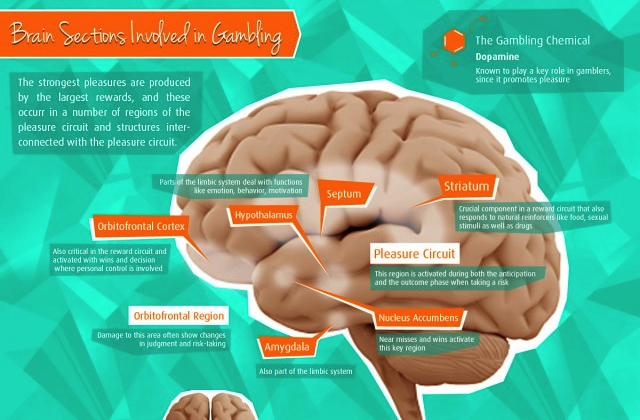The Psychology of Gambling reveals the intricate workings of the human mind when faced with risk and reward. Engaging in gambling activities captivates millions, as the blend of excitement and uncertainty sparks a complex emotional response. This compelling field of study explores why individuals often experience gambling addiction, a condition rooted in both cognitive biases and behavioral patterns. Concepts like the gambler’s fallacy and the allure of near misses in gambling not only elucidate the irrational beliefs that propel players to keep betting but also highlight the deeper motivations behind their actions. By diving into these psychological factors, we can better understand the reasons many find it so challenging to walk away from the tables, despite overwhelming evidence of negative consequences.
Delving into the realm of gambling behavior illuminates the various influences shaping individuals’ choices when engaging in chance-based activities. Alternative terms such as gaming psychology and betting motivation emphasize the mental frameworks that guide a gambler’s decisions, reflecting fundamental human instincts surrounding risk-taking and reward-seeking. These psychological elements, including cognitive distortions like the illusion of control, create intricate patterns in behavior that can lead to persistent gambling. Furthermore, recognizing the impacts of phenomena like near misses provides insight into why players often believe they are on the verge of success. Exploring this complex landscape helps us appreciate the delicate balance between thrill and risk, shedding light on the myriad factors influencing gambling habits.
The Psychology of Gambling: Understanding Cognitive Biases
The psychology of gambling is intricately woven with various cognitive biases that significantly impact decision-making processes among gamblers. One of the most notable biases is the illusion of control, which convinces players that they can affect the outcome of a game through their choices or strategies. This illusion can lead to an overestimation of their skills and a misguided belief that they can outsmart the odds. Such cognitive distortions not only enhance the thrill of gambling but also contribute to addiction as players seek to replicate the exciting moments they perceive to have an influence over.
Similarly, the gambler’s fallacy plays a crucial role in gambling behavior. This cognitive bias leads individuals to believe that previous outcomes in random events, such as coin tosses or lottery draws, can influence future results. For instance, if a person has lost several consecutive bets, they may feel that a win is ‘due’ and thus continue gambling in hopes of recouping their losses. This persistent drive, fueled by cognitive misconceptions, acts as a double-edged sword; it can enhance the engagement in gambling while simultaneously increasing the risk of addiction and financial turmoil.
Motivations Behind Gambling: Risks and Rewards
Understanding the motivations behind gambling illuminates the complex relationship between risk and reward that drives many individuals to engage in this behavior. For some, gambling serves as an escape from reality, a medium through which they can temporarily forget their problems and immerse themselves in the thrill of the game. The allure of big wins and the excitement of high-stakes betting provide a compelling incentive that often outweighs rational caution. Additionally, the chance of experiencing near misses can heighten emotional arousal, making gamblers feel they are close to a win, even when they aren’t. This psychological phenomenon often fuels continued participation in gambling activities despite adverse outcomes.
Moreover, social factors play a significant role in gambling motivation. Many individuals are drawn to the social environments of casinos or online gaming platforms, where camaraderie and competition combine to create an exhilarating atmosphere. This social aspect can exacerbate gambling behavior, especially when combined with cognitive biases. The desire to fit in or impress peers may push individuals towards riskier bets in hopes of garnering attention or admiration. By closely examining these motivations, we can better understand why gambling addiction is such a pervasive issue, rooted deeply in both psychological and social contexts.
Frequently Asked Questions
What role do cognitive biases play in the psychology of gambling?
Cognitive biases significantly influence gambling decisions, as they lead individuals to make irrational choices that can perpetuate gambling addictions. Examples include the illusion of control, where gamblers believe they can impact game outcomes through their skills, and the gambler’s fallacy, which convinces them that past losses will result in future wins. Understanding these biases is crucial for recognizing gambling motivations and the mental traps that can lead to detrimental behaviors.
How does the gambler’s fallacy affect gambling motivation and behavior?
The gambler’s fallacy can profoundly affect gambling motivation by creating a false sense of certainty in outcomes. Gamblers may continue to bet in hopes of a win, believing that they are ‘due’ for success after experiencing a series of near misses. This mindset not only fuels continued gambling behaviors but can also exacerbate gambling addiction, as individuals become trapped in a cycle of irrational betting fueled by erroneous beliefs.
| Key Point | Explanation |
|---|---|
| Cognitive Biases in Gambling | Gambling decisions are influenced by cognitive biases, such as the illusion of control and gambler’s fallacy. |
| Illusion of Control | Players may believe they can influence game outcomes through their skills or strategies. |
| Gambler’s Fallacy | The belief that past losses make future wins inevitable can lead to continued betting. |
Summary
The psychology of gambling is a captivating yet intricate domain that reveals the underlying cognitive and emotional factors that drive individuals to gamble. Recognizing the significant roles played by cognitive biases like the illusion of control and the gambler’s fallacy offers valuable insights into why many gambling enthusiasts continue to engage in risky behavior, even in the face of adverse outcomes. By understanding these psychological mechanisms, individuals can adopt a more reflective attitude towards gambling and perhaps mitigate the risks associated with excessive betting. This shift in perspective not only aids personal decision-making but also fosters a broader awareness of the psychological pitfalls embedded within gambling activities.
